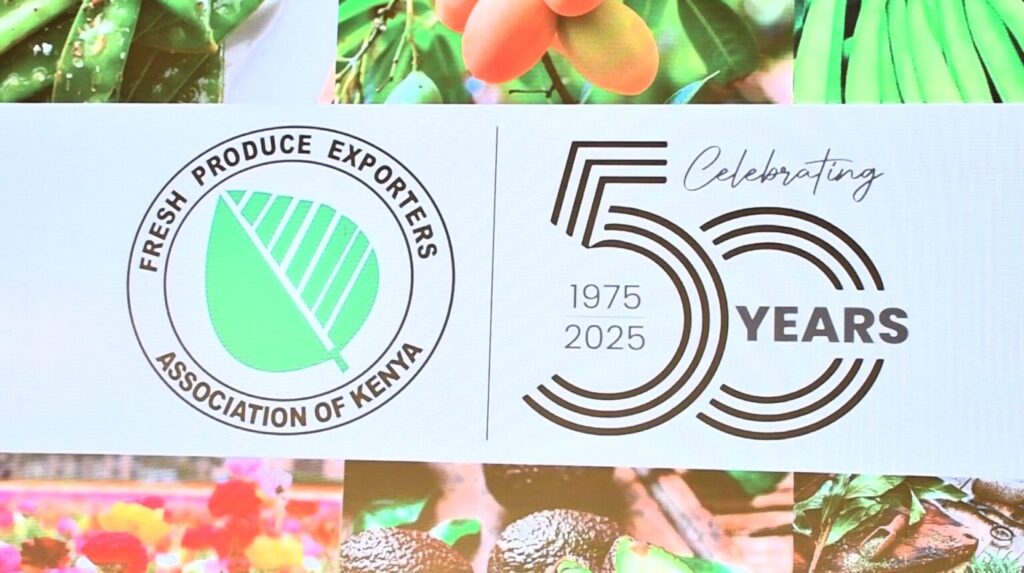Kenya’s Fresh Produce Exporters Association (FPEAK) is marking its 50th anniversary, celebrating five decades of championing horticulture growers and exporters. Founded in 1975 by entrepreneurial farmers seeking a stronger policy voice and organized access to overseas buyers, the association has grown from 36 members to more than 200 companies shipping flowers, fruits, vegetables, herbs, and other fresh produce worldwide. Europe and the United Kingdom remain core destinations, and trade links to Asia and the Americas continue to expand.
Chief Executive Hosea Machuki used the golden jubilee to spotlight horticulture’s economic weight in Kenya’s agri-led growth agenda. He estimates the sector currently brings in about KSh 150 billion a year and believes earnings could climb beyond KSh 300 billion with a supportive tax regime, improved rural and airport infrastructure, lower logistics costs, and targeted backing for small, medium, and micro enterprises. Youth- and women-led agribusinesses are viewed as vital engines of the next growth wave, deepening inclusion and employment.
Beyond marketing, FPEAK has long shaped production and compliance standards that underpin Kenya’s export credibility. Through the 1980s and 1990s it helped craft internationally aligned quality and food-safety protocols that opened premium supermarket shelves abroad. Today the association chairs the Executive Committee of Kenya Standard 1758, convenes the National Minor Crops Technical Working Group, and sits on the National Trade Facilitation Committee, among other policy platforms addressing governance, phytosanitary, and logistics issues.
The organization’s current five-year strategic plan concludes in 2025 and is under review. Market diversification will anchor the next phase: consolidating traditional European demand while accelerating entry and scale in Asia, the Middle East, and the broader Americas. Strengthening cold‑chain efficiency, digital traceability and compliance documentation, climate‑smart production practices, and technical support to emerging growers are expected pillars of execution that can de‑risk supply and lift volumes.
Sustainability runs through FPEAK’s anniversary message. Members are being encouraged to embed the three pillars—economic viability, social responsibility, and environmental stewardship—across operations to secure long‑term competitiveness and meet evolving buyer requirements on carbon, water, and labor standards. Anniversary festivities included a commemorative cake cutting and industry awards honoring companies and individuals whose innovations, partnerships with government and development actors, and commitment to best practice have advanced Kenya’s horticulture story over the past half century. The next 50 years hinge on coordinated, market-driven execution.

